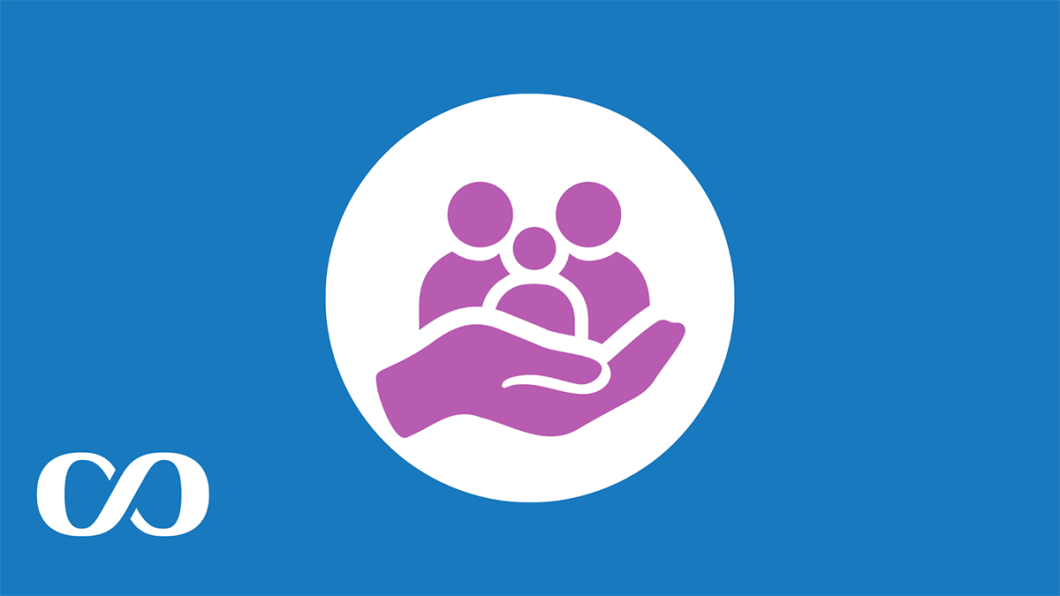
Framework helps families contribute meaningfully to research - from idea to impact.
A new paper published in Disability & Rehabilitation outlines how Holland Bloorview Kids Rehabilitation Hospital (Holland Bloorview) has strengthened its approach to involving families as partners in research. The paper, Engaging families, enhancing research: Optimizing rehabilitation research through co-creation of a Family Engagement in Research Framework, describes the development of an updated Family Engagement in Research (FER) framework. This framework aims to enhance meaningful, equitable partnerships with families across all stages of the research process.
The paper was co-authored by a multidisciplinary team from the Bloorview Research Institute (BRI) and Holland Bloorview, in collaboration with family and youth leaders who are part of the hospital’s Research Family Engagement Committee (RFEC).
Why it matters
For over a decade, Holland Bloorview has been recognized as a leader in client and family engagement. The FER program, which launched in 2013, supports families with lived and living experience to contribute meaningfully to research - helping shape study design, implementation, analysis and outputs such as presentations and publications.
In 2019, an external evaluation revealed opportunities to improve the program, especially in how it defined and described roles and supported different types of engagement. Families and researchers alike were looking for more clarity and flexibility in how families could meaningfully contribute.
From framework to co-creation
In response, the RFEC launched a comprehensive refresh of the FER framework. This was done using a co-creation model grounded in the SOAR+ framework (Strengths, Opportunities, Aspirations, Results), which focuses on building on what is already working while also identifying future opportunities.
Over 10 months, family leaders, youth leaders, staff, trainees and researchers came together in a series of co-creation workshops. These sessions helped shape a renewed vision of family engagement in research - one that recognizes the many ways families can meaningfully shape research, from idea generation to implementation and sharing of results.
“We knew that to make the framework truly useful, it had to reflect the voices and needs of the families we work with,” said Dr. Shannon Scratch, senior clinician scientist at the BRI and holder of the Holland Family Professorship in Acquired Brain Injury. “This wasn’t just an update - it was a chance to reimagine what authentic collaboration looks like in research.”
What’s new in the updated framework
The revised FER framework outlines three distinct roles that families can take on:
- Family advisor: Offers input at specific points in the research process - for example, during conceptualization, planning or dissemination.
- Family partner: Collaborates as an active member of the research team across multiple phases, such as study design, implementation and knowledge translation. This role may include acting as a co-investigator or knowledge user.
- Lived experience educator: Draws on personal experience to support learning across the research process - for instance, through education sessions, training workshops or knowledge-sharing events.
To support implementation, the RFEC also created a set of five guiding principles: inclusiveness, co-development, transparency, support and mutual respect. These principles are the foundation of the framework and are reflected throughout its accompanying resources, including a comprehensive user guide.
The user guide helps families and researchers identify engagement opportunities and outlines practical steps for putting the framework into action. It is freely available on the Holland Bloorview website.
“In partnership with families, we were able to adapt and expand on existing models of engagement, creating what we needed for our context,” said Christine Provvidenza, first author and knowledge translation lead at Holland Bloorview. “The framework, guiding principles and user guide give families and researchers the tools and clarity they need to work together in meaningful ways.”
Built on lived experience
Unlike one-size-fits-all approaches, the updated framework is designed to be flexible and adaptable. It allows research teams and families to tailor engagement roles to their unique interests, needs and project goals.
“Genuine collaboration between families and scientists resulted in a truly remarkable opportunity to create an inclusive framework for improving future family engagement. Continuous collaboration is our current focus to ensure families’ needs are aligned and impacted through integrated initiatives in research,” said Suzanne Jorisch, family leader at Holland Bloorview.
Looking ahead
The authors hope the framework can inspire and inform other institutions looking to deepen their family engagement practices. Since its virtual launch during the COVID-19 pandemic, the framework has continued to be accessed and used across Holland Bloorview and shared more broadly within the research and health-care community.
From here, understanding the use of the framework in practice is key. As it continues to be used and adapted within Holland Bloorview, new opportunities for families and researchers will emerge - offering insights that can help further shape and strengthen family engagement in research.
Access the paper and resources
Read the full paper here.
View the updated Family Engagement in Research Framework and download the user guide:
- RFEC Framework (PDF)
- RFEC Framework User Guide (PDF)